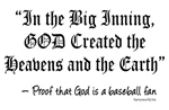In 1941, the Dodgers won the National League Pennant. Led by NL MVP Dolph Camilli, eventual Hall of Fame second baseman Billy Herman, and an outfield which consisted of .300 hitters Dixie Walker, Pete Reiser, and Hall of Famer Joe "Ducky" Medwick. Catcher Mickey Owen failed to catch a pivotal strike three that would have won Game Four of the 1941 World Series and the Dodgers never caught up, losing to the New York Yankees in five games.
The fact that baseball as a whole had not yet integrated provides an understandable reason that the Dodgers teams prior to 1947 are not discussed. The Dodgers won three pennants during the decade of the 1940's as only the St. Louis Cardinals won more (four), (The Cincinnati Reds won the pennant in 1940, the Chicago Cubs in 1945, and the Boston Braves in 1948.) I spent a little time looking over the 1945 team in particular, the team that finished in third place in the National League behind the 1942, 1943, and 1944 NL Champion Cardinals and the 1945 National League Champion Cubs. The Dodgers finished eleven games out of first in 1945, enjoying a brief 20 day stretch where they were in first place from June 17th- July 7th. I am going to attempt to interest you with some players of reference on the 1945 Dodgers. Please let me know if I have intrigued you enough.
The starting catcher on the team was Mike Sandlock, leading a group of seven (7) catchers to suit up that season for the Dodgers with 80 games played. Sandlock would later gain a little bit of fame for being the game's oldest living player before passing away in 2016 at the age of 100. Others to get some pt (playing time) at the position were Johnny Peacock (48 games played), Fats Dantonio (47), Owen (24), Stan Andrews (21), 43 year old Clyde Sukeforth (18), and 41 year old Ray Hayworth (2).
The Dodgers infield was 75% composed of players named in David Frishberg's "Van Lingle Mungo," one of the best baseball songs of all time.
The outfield was led by Dixie Walker, who hit .300, driving in 124 runs, scoring 102 more, and hit 42 doubles. Luis Olmo also had a banner year for the Dodgers, driving in 110 runs and leading the league with his 13 triples. The center fielder was Goody Rosen, who also had his best season. Rosen hit .325, had 197 hits, scored 126 runs, and had 234 doubles, 11 triples, 12 home runs, and drove in 75 runs.
20-year-old Ed Stevens got into 52 games, primarily at first base for the Dodgers in 1945. Stevens was being groomed to be the starting first baseman for Brooklyn, likely scheduled to be the starter in 1947. The Dodgers changed their mind once Jackie Robinson dominated the minor leagues in 1946, leading the Dodgers to carve out a place at first base for him the next season. Stevens had a good season in Triple-A in 1947, hitting .290, 27, 108 before he was sold to the Pittsburgh Pirates after the season.
On April 18th, the Dodgers played a game against the Philadelphia Phillies. Manager Leo Durocher started his second straight game at second base. Sukeforth, who was serving as a part time player, like others helping out because so many MLB players were serving in World War II, pinch hit in this game even though he had already become a coach and scout as early as 1943. Sukeforth played in games for the first time in over eleven (11) years. Former Yankees outfielder Ben Chapman, by this time a pitcher, started the game for the Dodgers. Chapman would later gain infamy while serving as the Philadelphia Phillies manager for his racist taunts directed at Robinson during a game in 1947. Babe Herman also returned to the field after a long absence, getting into 37 games mostly as a pinch hitter at age 42, having not appeared in a MLB game since 1937.
The Dodgers "closer" that season was Cy Buker, a 27 year old who pitched in his only big league season in 1945. Reportedly because of a salary dispute, Buker was sent to the minors in 1946 and never made it back to the big leagues. He led the Dodgers with five (5) saves. 21 year old Clyde King was an important reliever for the Dodgers that season. King would later manage in the major leagues for the San Francisco Giants (1969-1970), Atlanta Braves (1974-1975) and Yankees (1982).
The 1945 Brooklyn Dodgers provided a nice baseball history lesson, if nothing else. I hope you enjoyed the recap of some of the players that made this season interesting. Please let me know if you would be interested in reading similar recaps of random MLB seasons for particular teams that are not often discussed.

 RSS Feed
RSS Feed
